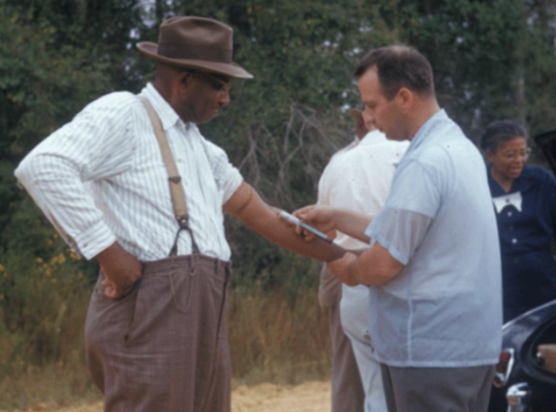The Tuskegee Syphilis Experiment
The Tuskegee Syphilis Experiment took place in Tuskegee Alabama. The study was conducted by the Public Health Department from 1932 to 1972. The study tracked 399 African American men with syphilis and 201 without and how they would react to untreated syphilis. Syphilis is a disease caused by bacteria that is transmitted through sex. Syphilis begins painless which made it easier for the doctors to convince people that they were healthy. The men did not consent to be a part of the study and were denied treatment for syphilis even when their lives depended on it. Between 28 and 100 of the men in the study died as a result of being denied treatment for their syphilis. In 1972 the the project was discovered and shut down. In 1997 President Clinton formally apologized to the survivors.
This study breaks all four principles of medical ethics. The people who conducted the study had no respect for the subject's Autonomy. When the dying subjects came to the Public Health Department begging for their syphilis to be treated the department looked away and let them die. This study is the farthest thing from beneficence and all of the doctors involved possessed the very opposite of Non-Maleficence. Every piece of this study was bad and there was no outcome for the greater good. The information obtained from this study will never be able to justify the damage it caused. The only thing notable the doctors learned was that if you do not treat syphilis your patient will likely die and you will get your medical license revoked. This study took equality way too seriously. They decided to treat everyone involved the same whether they had syphilis or not. Instead of treating everyone equally, they needed to use justice to address the problem in the first place. If this study had an ounce of justice in its bones they would have treated the people with syphilis.
This study is an example of when persistence can be extremely toxic. This study faced a lot of adversity between people trying to shut it down and the subjects dying. Despite the doctors running into challenges they persisted and kept the study open for forty years. This study feels like a doctor read the ACS pillars and thought how can I create something that goes against all of these values? Creating this project is extremely unethical because they let people die in their care and there was no logical thinking that went into creating the study. If there was logic involved they would have thought obviously if we do not treat a dying person they will die.

